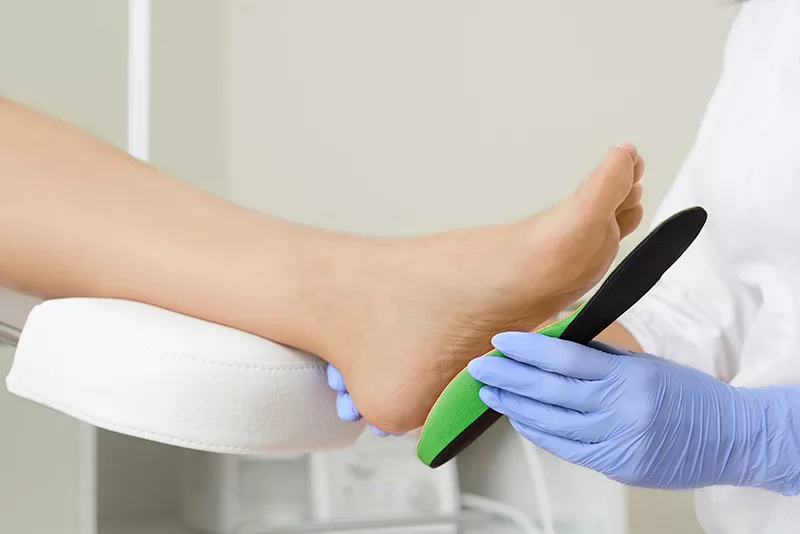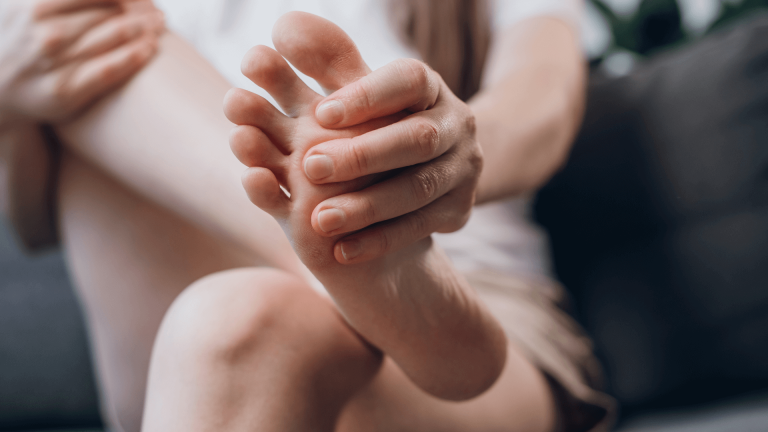Foot injuries can significantly impact your daily life, whether you’re an athlete, a busy professional, or someone who enjoys an active lifestyle. Fortunately, orthotics for foot injuries can provide much-needed support, pain relief, and help in the healing process.
In this article, we’ll explore how orthotics work, the types of foot injuries they can help with, and how to choose the right orthotics for your needs.
What Are Orthotics?
Orthotics are custom or pre-made shoe inserts designed to support, align, and improve the function of your feet. They help redistribute pressure, correct abnormal walking patterns, and reduce stress on injured tissues.
Whether you’re dealing with chronic pain or a sudden injury, orthotics can play a crucial role in your recovery.
Common Foot Injuries Treated with Orthotics
Orthotics can aid in the treatment of many common foot injuries, including:
- Plantar Fasciitis: One of the most common causes of heel pain. Orthotics reduce strain on the plantar fascia.
- Achilles Tendonitis: Heel lifts and supportive inserts can reduce tension on the Achilles tendon.
- Shin Splints: Orthotics improve foot alignment and reduce stress on the lower leg.
- Flat Feet / Fallen Arches: Arch-supporting orthotics help restore proper foot mechanics.
- Stress Fractures: Cushioning orthotics absorb shock and reduce pressure on the bones.
- Overpronation / Supination: Corrective orthotics balance the foot and improve gait.
Benefits of Orthotics for Foot Injury Recovery
Using orthotics during injury recovery can:
- Reduce pain and inflammation
- Improve walking and running mechanics
- Prevent further injury or re-injury
- Enhance comfort during daily activities
- Support long-term foot health
Custom vs. Over-the-Counter Orthotics
There are two main types of orthotics:
- Custom Orthotics: Made specifically for your feet based on a podiatrist’s evaluation. Ideal for chronic conditions or severe injuries.
- Over-the-Counter (OTC) Orthotics: Pre-made and available at drugstores or online. Great for mild discomfort or short-term use.
A professional can help determine which is right for you based on your condition and lifestyle.
When to See a Specialist
If you’re experiencing persistent foot pain or recovering from a foot injury, it’s a good idea to see a podiatrist or orthopedic specialist. They can assess your gait, diagnose the problem, and recommend the best type of orthotic.
Final Thoughts
Orthotics are more than just shoe inserts — they’re a powerful tool in preventing and recovering from foot injuries. Whether you’re managing plantar fasciitis, shin splints, or general foot pain, the right orthotics can make a huge difference in your comfort and mobility.
If you’re dealing with a foot injury, don’t ignore the pain. Talk to a healthcare provider about orthotics and take the first step toward recovery.




